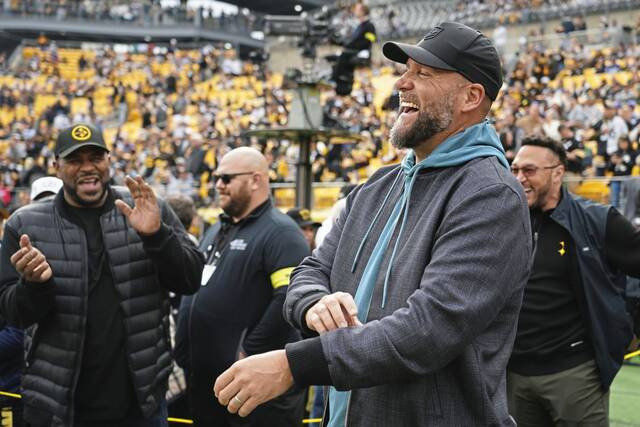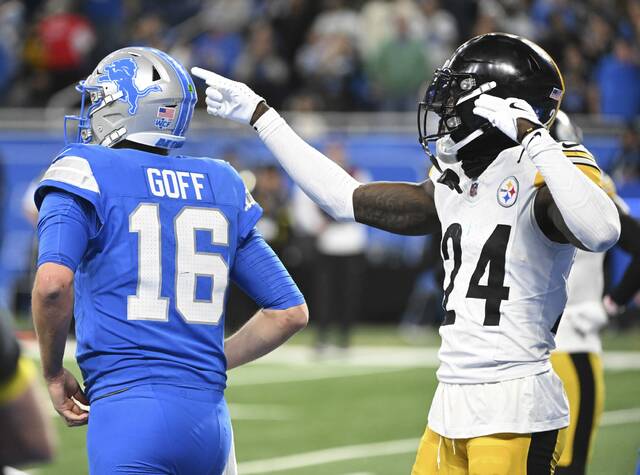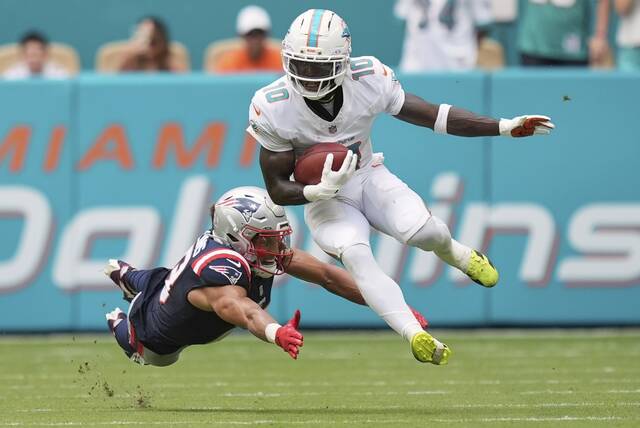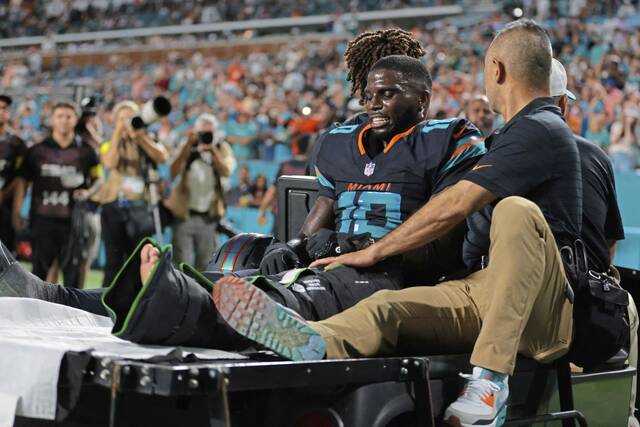As the NFL seems to be scrambling for a new way to conduct overtime, Pittsburgh Steelers coach Mike Tomlin has an idea.
Make everything old, new again.
The current NFL overtime rule is that if the winner of the overtime coin flip goes down the field and scores a touchdown on the first possession of the extra period, that’s just too bad for the other team. They don’t get a chance to possess the ball.
Just ask the Buffalo Bills. They lost an AFC playoff game to the Kansas City Chiefs as a result of that format this year.
Under current rules, if the coin flip winner decides to receive the ball and kicks a field goal or is unable to score at all, the other team gets at least a possession and the clock moves along until a winner is determined.
Or — at least in the regular season — unless a tie results after the first 10-minute overtime period (as the Steelers and Lions found out earlier this season).
In recent years, many have complained that the current format is unfair because the team that kicks off — by virtue of a 50-50 coin toss and nothing else — may never possess the ball in overtime if the receiving team scores a touchdown.
Prior to 2010, the receiving team only needed to kick a field goal to win. In other words, true “sudden death.”
Related:
• NFL owners approve rule change for OT in playoffsForget a quest to find fairness in possessions. Tomlin says he wants to rewind the clock to the old days of actual sudden death in overtime.
“To be quite honest with you, I’m a sudden death advocate,” Tomlin said Monday during league meetings in Florida. “I’m a traditionalist. I don’t fear sudden death. I never have. Obviously, I lost that battle. A decade ago. But my position remains unchanged. I am one of the few sudden death advocates, I would imagine.”
Tomlin’s stance is that the quest for “fairness” — in terms of possessions, anyway — stops at the end of the regulation clock.
“I just think (over) 60 minutes, everybody has had a fair opportunity to win the game,” Tomlin continued. “When you’re talking about changes as it pertains to competitive fairness, I speak to the first 60 minutes that we all had. So, win the game.”
I’m fine with the current overtime format. It doesn’t bother me as much as it does others. And, with field goals being so much easier to kick in the current NFL than when Tomlin’s preferred old rules went into place (for the playoffs in 1940, championship games in 1946, and the regular season in 1974), at least needing to score a touchdown on the first possession puts a bit more of an onus on the offense of the team who gets the ball first.
Others want to demand at least one touch per team.
OK. Fine. Will we then be OK with …
• The prospect of Team A getting two possessions in overtime, and Team B getting only one if they both wind up with the same point total after their initial overtime possession? Is that any more or less fair when you think about it? Or are we still going to complain about that?
• In this alleged age of player safety, the potential of more injuries as overtimes last longer?
• Longer overtimes — especially in the playoffs — bleeding into playoff windows of later games?
• Some modified version of the college format of equal offensive possessions and no clock until a tie is broken?
Because if we aren’t, then maybe Tomlin has a point. Or maybe we should just leave well enough alone with the current system.
Ironically, few coaches have a reason to gripe about the current system or old-fashioned sudden death more than Tomlin.
After all, it was his fifth Steelers team that was the first squad in NFL history to fall victim to the current “one-possession, one-touchdown” game-ending format when Denver Broncos quarterback Tim Tebow infamously hit Demaryius Thomas for a game-winning overtime score in the 2011 AFC playoffs.
Yet Tomlin seems to be on board for saying that the more draconian the league is with its overtime rules, the better.
If you can’t win in the first 60 minutes, tough luck. And if the other team wins the coin toss and has a good kicker, worse luck for you.
Actually, the more granular we get, the more compelling Tomlin’s argument becomes. After all, short of modifying and adopting the college untimed possession-for-possession format, there is no way to guarantee totally equitable offensive possessions.
So why not end the game with as arbitrary of a function as you began it? The coin flip.
That’s if, in fact, you subscribe to Tomlin’s thesis that the game’s 60-minute construct moderates fair play in the first place.
And once it ends, if we are going outside those boundaries, who says life is fair anyway?
As I’ve stated before, I really don’t care how the NFL decides to implement overtime. Sudden death. One-touch touchdowns. Push the college format back to the 40-yard line or midfield.
Let’s care about television windows and injury risk. Or let’s not. Whatever. Let’s just stop complaining about it. Because, at the core of his argument, Tomlin is right.
Sixty minutes is plenty fair to decide the outcome of an NFL game. Anything else is just an attempt to avoid ties in the regular season.
And, in the postseason, to make Tim Tebow a legend.
Uh, I mean, determine a winner for the next round. That’s right. Determine a winner for the next round.
That’s what I meant.









